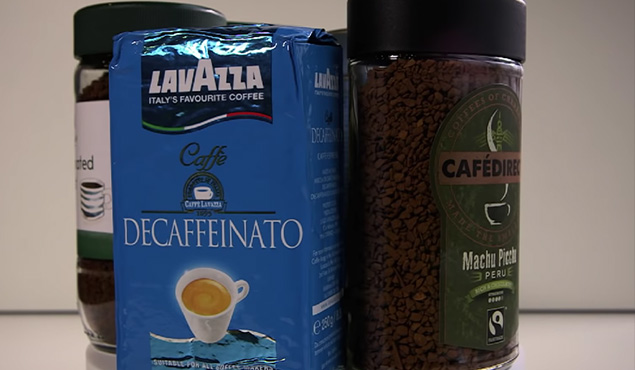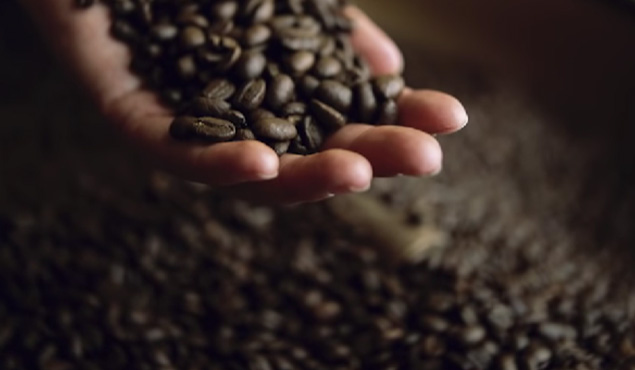Is Decaf Coffee a Diuretic? (Its Effects on Body)

Do you love the taste of coffee but want to avoid the side effects of caffeine? Decaffeinated coffee is the perfect alternative. Yet, have you ever wondered if Decaf coffee has the same diuretic effect as a regular cup of joe?
A common misconception is that decaf coffee does not have any caffeine at all. It contains a small amount – about 2-5% caffeine found in a regular coffee cup.
Besides, studies have shown that decaf coffee is not a diuretic. Hence, it won’t increase your need to urinate or cause dehydration like a regular coffee cup.
While decaf coffee may not be a diuretic, it still has some caffeine, and diuresis has some benefits too.
So, if you want to learn more about diuretics and compare the diuretic effect of coffee and decaf, keep reading.

What Are Diuretics?
Have you ever heard of “water pills”? Well, those are diuretics!
Diuretics are medications that help the kidneys remove excess salt and water from the body, ultimately increasing urine output.
They work by increasing the amount of salt and water in the urine. Either they block the reabsorption of sodium and chloride in the kidneys or increase the urine outflow through the kidneys.
Hence, diuretics are essential medications to remove excess water from the body and maintain blood pressure by balancing the electrolytes.
What are the different Types Of Diuretics?
Let’s have a look at the different types of diuretics and how they differ:
Thiazide Diuretics
Doctors commonly use thiazide diuretics to treat high blood pressure patients. Thiazide diuretics prevent the reabsorption of sodium and chloride in the kidneys.
Loop Diuretics
Doctors use loop diuretics to treat more severe conditions like heart failure or kidney disease.
Potassium-sparing Diuretics
Potassium-sparing diuretics are typically used with other diuretics to help maintain the body’s normal potassium levels.
Does Decaf Coffee Have a Diuretic Effect?
Well, coffee drinkers always want to know why they have an increased urge to pee after they drink coffee. It’s because coffee works as a natural diuretic.
But we know that caffeinated and decaffeinated coffees are not created equal. So, is decaf coffee a diuretic too?
The short answer is yes; decaf coffee has a diuretic effect but much less than regular caffeinated coffee.
Decaf coffee is simply regular coffee that undergoes decaffeination to remove 90% caffeine content. This process can involve liquid carbon dioxide application, solvents like methylene chloride or ethyl acetate usage, or the Swiss water method.
The result is a coffee that still contains some caffeine, usually around 2-5 milligrams per cup, depending on the brand and brewing method.
Caffeine is the main compound responsible for the diuretic effect of coffee. Hence, decaf coffee has a milder diuretic effect than regular coffee.
However, it’s important to note that drinking decaf coffee can still produce more urine than drinking water alone.
All credit goes to green coffee beans, whether caffeinated or not. It contains natural diuretics like chlorogenic acid that stimulate urine production.
So, while decaf coffee may not be as strong of a diuretic as regular coffee, it can still increase urine output to some extent.
Related Read: Decaf Coffee: Is it a Dehydration Culprit? (Interesting Facts)

What Is The Difference Between the Diuretic Effect Of Caffeinated And Decaffeinated Coffee?
Coffee drinkers may have noticed that it makes them pee more often. But what about decaf coffee? Does it have the same effect?
Let’s explore the difference between the diuresis of caffeinated and decaffeinated coffee.
Caffeinated Coffee
First, let’s talk about regular caffeinated coffee. The main culprit behind increased diuresis is caffeine, a natural stimulant in coffee beans.
When you drink caffeinated coffee, the caffeine stimulates your kidneys to produce more urine. Thus, it can lead to more frequent trips to the bathroom.
Decaffeinated Coffee
Now, let’s see if decaf coffee is diuretic too. While it’s true that decaf coffee can still have a mild diuresis, it’s much less than regular coffee.
The decaffeination process removes most of the caffeine from the coffee beans. Without caffeine to stimulate the kidneys, decaf coffee is only a mild diuretic, if at all.
Drinking decaf coffee can be a good alternative for moderate coffee drinkers looking to cut down their caffeine intake. You’ll still get the taste and aroma of the coffee but without diuresis.
Tip: Stay hydrated by drinking enough fluids, as regular and decaf coffee can cause fluid loss.
How Much Caffeine Intake Makes You Start Peeing?
It’s important to note that caffeine’s diuretic effect can vary depending on individual factors such as sensitivity and tolerance. So, it’s difficult to give exact numbers for the amount of caffeine intake that makes you start peeing.
However, based on general guidelines and studies, here are some approximate estimates for three different categories of caffeine consumers:
Mild caffeine consumers (150 mg of caffeine Content)
For people sensitive to caffeine or those who consume coffee, a small amount of caffeine can cause them to start peeing more frequently.
In short, taking as little as 100 milligrams of caffeine – a small cup of coffee or a soda can cause you to feel frequent urges to pee.
Moderate caffeine consumers (400mg of Caffeine)
A moderate caffeine intake means consuming 300-400 milligrams (2-3 cups of coffee) daily.
You may feel the urge to use the bathroom sparingly if you are a moderate caffeine consumer. However, higher doses of caffeine may still cause you to urinate frequently.
Heavy caffeine consumers (500 mg or more)
You will be less sensitive to caffeine-caused diuresis if you consume more than 400 milligrams of coffee daily. Yet, excessive caffeine intake can still cause dehydration and increase the need to urinate.
However, individual tolerance and sensitivity to caffeine can vary widely. If you notice that caffeine causes you to urinate more frequently than usual, it may be a sign that you need to adjust your caffeine intake or timing.

What Are The Positive Effects Of Using Diuretics?
Diuretic medicines aim to increase urine production to deal with certain health conditions. On the other hand, caffeine also increases urine production and causes diuresis.
However, coffee-induced diuresis is not only problematic, but it also has several benefits.
The most apparent effect of the diuretic is that it reduces fluid retention and bloating. Thus, it’s helpful for people suffering from fluid build-up diseases like premenstrual syndrome (PMS) or heart failure.
Another positive effect of diuretics is that it reduces blood pressure for high BP patients. It’s one of the treatments for managing hypertension to reduce the risk of angina pains, heart attacks, and strokes.
Diuretics also play a vital role in curing inflammatory diseases by reducing swelling and pain associated with diseases like arthritis.
Is Drinking Decaf Coffee Worth It?
Decaf coffee is worth trying if you want an excellent alternative to fulfill your caffeine craving while avoiding jitters and sleepless nights.
Decaf coffee is a good alternative for people who are addicted to regular coffee but have been suffering from caffeine-induced issues.
Since decaffeinated coffee has comparatively less caffeine, it gives you a caffeine kick without inducing diuresis and acid reflux. Decaf coffee also contains all the beneficial compounds of coffee, such as antioxidants and anti-inflammatory agents.
What are The Benefits Of Decaf Coffee?
Decaf coffee is a popular beverage that offers the taste of coffee without the stimulating effects of caffeine. Here are some potential benefits of drinking decaf coffee:
- Decaf coffee has the antioxidant benefits of regular coffee without caffeine jitters.
- It lowers the risk of type 2 diabetes.
- It does not have a diuretic effect.
- Several studies suggest decaf plays an essential role in reducing liver disease risks.
- Decaffeinated coffee is an excellent alternative to caffeine-rich regular coffee for those with caffeine sensitivities.

What are the Side Effects Of Decaf Coffee?
Like every other food, coffee negatively impacts our health if we overuse it or ignore red signals from our body.
So, let’s see what harm decaffeinated coffee can do to us if we overuse it.
- Decaf coffee is acidic, so it can still cause acid reflux.
- Some farmers use the chemical solvent methylene chloride to produce decaffeinated coffee, which can be harmful if consumed excessively.
- Decaffeination doesn’t remove all caffeine. So, it can strongly affect people who are intolerant or highly sensitive to caffeine.
- Decaffeination removes beneficial minerals, such as potassium and magnesium, from the coffee beans.
What Harm Does The Diuretic Effect Of Coffee Can Do?
While coffee has some benefits, such as improving cognitive function and boosting energy, it induces diuresis leading to harmful consequences.
Coffee-induced diuresis increases urine output. Too much urination can cause dehydration, which leads to headaches, fatigue, and impaired concentration.
Moreover, coffee-induced diuretics can cause a loss of potassium. As a result, you may suffer from high BP and heart disease.
Excessive caffeine intake can also lead to irregular heartbeats and palpitations.
Furthermore, coffee-induced diuresis reduces the absorption of certain medications by fastening the kidney function that washes off the medicines.
Hence, you must be mindful of using regular coffee when taking antidiuretics.
How To Overcome Decaf Coffee-Induced Diuresis?
Though decaffeinated coffee is not a potent diuretic, some people may still feel like peeing more often.
So, if you’re experiencing diuresis or increased urine production after drinking decaf coffee, there are several things you can do to overcome it:
Increase Your Fluid Intake
Drinking more water can help replenish the fluids you lose due to urine production.
Limit Caffeine Use
Try reducing caffeine intake or switching to caffeine-free beverages like decaf tea.
Consume Foods High In Potassium
Decaf coffee can cause potassium loss, an essential mineral that helps regulate fluid balance in the body. Eating Potassium-rich foods like bananas, avocados, and sweet potatoes can help replenish your potassium levels.
Avoid Drinking Decaf Coffee In The Morning
Diuresis tends to be more pronounced in the morning. So, avoid drinking decaf coffee in the morning or when you need to stay hydrated.
FAQs
Does Caffeine Make You Pee?
Yes, caffeine makes you pee more because it is a diuretic. Thus, it increases blood flow to the kidneys, causing them to produce more urine than usual. It leads to dehydration if you don’t drink enough fluids to compensate for the increased output.
Does the Diuretic Effect Of Coffee Harm Kidneys?
No evidence suggests that moderate coffee consumption of around 100-200 mg of caffeine harms the kidneys. Some studies have shown that a balanced coffee intake can protect you against chronic kidney disease. However, excessive caffeine consumption can cause dehydration which can strain and damage kidneys over time.
Does the Diuretic Effect Of Coffee Positively Impact HTN Patients?
The diuretic effect of coffee can positively and negatively impact patients with hypertension (high blood pressure). The increased urine output caused by caffeine can help reduce excess fluid in the body, which is beneficial for those with hypertension. However, excessive caffeine consumption can also cause dehydration.
Does decaf coffee affect your heart?
Decaffeinated coffee does not significantly affect heart health when consumed in moderation. While decaf coffee still contains some caffeine, it is usually in much smaller amounts than regular coffee and therefore does not have the same stimulatory effects on the cardiovascular system.
Can decaf coffee cause anxiety?
No! Decaf coffee doesn’t cause anxiety as it contains very little caffeine. However, decaf coffee still contains other compounds that can stimulate the production of stress hormones, such as cortisol.
Why do I feel sleepy after drinking decaf coffee?
Decaffeination of coffee involves using chemicals like methylene chloride to remove the caffeine content. However, the substances in decaf coffee can slow down the central nervous system, leading to drowsiness and fatigue after consumption.
